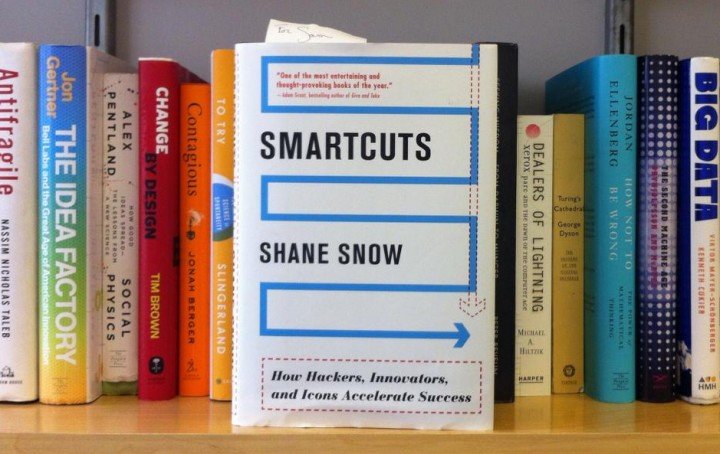
Uber has not had the best time of things, not least because it has made some bad decisions about its activities. At least, this is a view portrayed by Neal Gorenflo of Shareable recently. Uber has had a lot of backing from many investors, but according to Gorenflo, “Some of Silicon Valley’s most powerful people backed an illegal enterprise that wilfully and systematically broke the law.”
Some of the various abuses mentioned by the company include the fact that it was charged $150 million in fines, that it has exploited drivers, been abusive towards its staff, has not been respectful of the privacy of its users, has bullied local governments across the globe and that the company’s activities have resulted in many complaints about sexual harassment. Recently, CEO Travis Kalanick was required to resign, and it seems surprising that he was not asked to do so considerably sooner, given the types of issues that have faced the organisation.
The ethos of the company appears to have been to undertake the wrong behaviour first, without asking if it is OK to do so, and then saying sorry later, as if this will fix everything. This is not a unique approach and other Silicon Valley companies may be argued to also have taken such an approach. Indeed, Gorenflo takes it as far as suggesting that “these investors rewarded criminality and may have emboldened those who find civility and the law inconvenient.”
Gorenflo’s standpoint is not unique as the media is finally pinpointing the abuses and lack of ethics which are so prevalent in Silicon Valley. An interesting article, posted by Newsweek, states how:
“Kalanick is by no means the only problem with the Silicon Valley of the 2010s. Plenty of bad players have helped create a tech universe stained by too much misogyny, financial lunacy, social irresponsibility and general asshole behavior.”
Newsweek article and Gorenflo, both make a case how the approach of Uber, and others, has been almost to suggest that it is perfectly fine to bring about disruption through breaking the law. In fact, this is a poisonous approach towards doing business, and Uber is not the only company that is guilty of these types of behaviour.

This brings up important questions about the technology industry in general. The way that the world has evolved, those in senior leadership positions at tech companies are effectively statesmen. They hold a tremendous degree of power, both nationally and internationally. There is a need for these individuals to start acting like the major leaders that they have become and set a better example. There is also a need to do away with the tremendous greed and insensitivity that has been deemed as seemingly acceptable for the sake of bringing about disruption in any industry. Technology leaders need to recognise that this is not a tenable or viable viewpoint in the longer term, and find better ways to approach business, that are more ethical and sustainable.
Of course, getting rid of one CEO is not going to dramatically transform the rot that has set in. There need to be better decisions made by all. Deciding to invest in a company like Uber, that has committed criminal acts is a moral wrong doing, as it enables this behaviour. Investing should not just be a financial decision in this day and age. There are many opportunities for change in face, and we can all take action. The media can report on the wrong doing. Regulators can decide that it is completely unacceptable and shut it down. Users may delete the app. Analysts can explain that the service is criminal. Each person has his or her own responsibility in this regard to reform this industry and make sure that the unacceptable does not become acceptable.
Therefore, as a human society, we can improve. We can decide to support better options that act morally and ethically, rather than giving our money to disrespectful enterprises. Alternatives can be built that are viable and sustainable and that do not break the law. Many examples of this can already be seen worldwide. Examples might include RideAustin, which is found in the USA, as well as Fairmondo in Germany.

RideAustin is a community driven nonprofit ridesharing company that began in 2016, working in the area of Austin . It is powered by donations, with paid and volunteer hours from both the Austin tech community and the broader Austin community. As for Fairmondo, it is a cooperatively owned online marketplace offering ethical goods and services from sellers with a strong commitment to ethical business and trade.
Some of these new platforms are also embracing blockchain technology as the technology most fit to the ethos of transparency and sharing inherent to the concepts of platform cooperatives. Various interesting companies have started to operate, using blockchain. That is the case of resonate, a music sharing platform, that is based in Berlin.
These types of alternatives put people and communities at the heart of the businesses, not profitability at all costs. However, this does require us, the users to change. We need to consider what we are supporting when we support it, and make sure that this is aligned with our own values. We need to support companies that act morally and ethically. Each person has a role to play in making sure that we can achieve this.

Maria Fonseca is the Editor and Infographic Artist for IntelligentHQ. She is also a thought leader writing about social innovation, sharing economy, social business, and the commons. Aside her work for IntelligentHQ, Maria Fonseca is a visual artist and filmmaker that has exhibited widely in international events such as Manifesta 5, Sao Paulo Biennial, Photo Espana, Moderna Museet in Stockholm, Joshibi University and many others. She concluded her PhD on essayistic filmmaking , taken at University of Westminster in London and is preparing her post doc that will explore the links between creativity and the sharing economy.




























